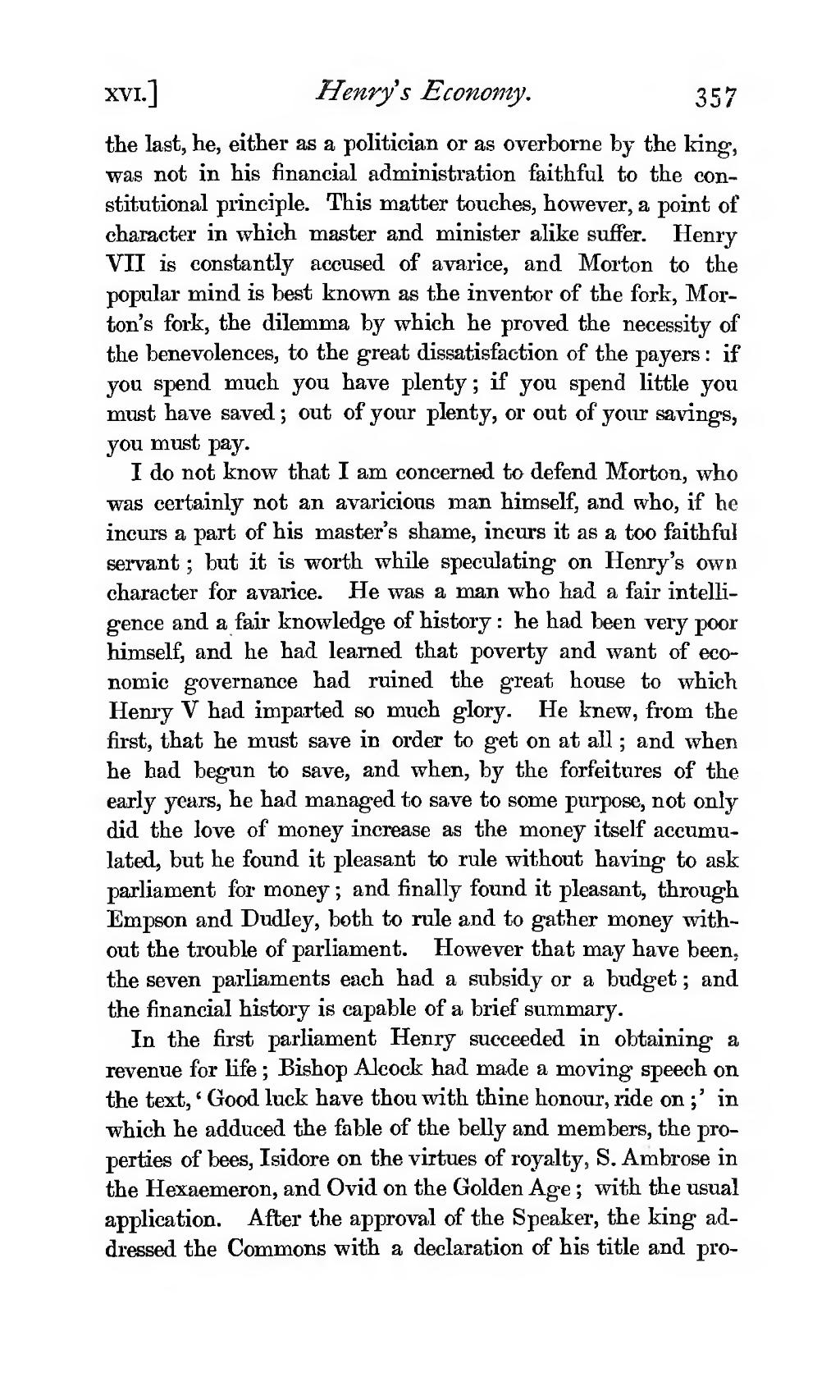the last, he, either as a politician or as overborne by the king, was not in his financial administration faithful to the constitutional principle. This matter touches, however, a point of character in which master and minister alike suffer. Henry VII is constantly accused of avarice, and Morton to the popular mind is best known as the inventor of the fork, Morton's fork, the dilemma by which he proved the necessity of the benevolences, to the great dissatisfaction of the payers: if you spend much you have plenty; if you spend little you must have saved; out of your plenty, or out of your savings, you must pay.
I do not know that I am concerned to defend Morton, who was certainly not an avaricious man himself, and who, if he incurs a part of his master's shame, incurs it as a too faithful servant; but it is worth while speculating on Henry's own character for avarice. He was a man who had a fair intelligence and a fair knowledge of history: he had been very poor himself, and he had learned that poverty and want of economic governance had ruined the great house to which Henry V had imparted so much glory. He knew, from the first, that he must save in order to get on at all; and when he had begun to save, and when, by the forfeitures of the early years, he had managed to save to some purpose, not only did the love of money increase as the money itself accumulated, but he found it pleasant to rule without having to ask parliament for money; and finally found it pleasant, through Empson and Dudley, both to rule and to gather money without the trouble of parliament. However that may have been, the seven parliaments each had a subsidy or a budget; and the financial history is capable of a brief summary.
In the first parliament Henry succeeded in obtaining a revenue for life; Bishop Aleock had made a moving speech on the text, 'Good luck have thou with thine honour, ride on;' in which he adduced the fable of the belly and members, the properties of bees, Isidore on the virtues of royalty, S. Ambrose in the Hexaemeron, and Ovid on the Golden Age; with the usual application. After the approval of the Speaker, the king addressed the Commons with a declaration of his title and pro-
